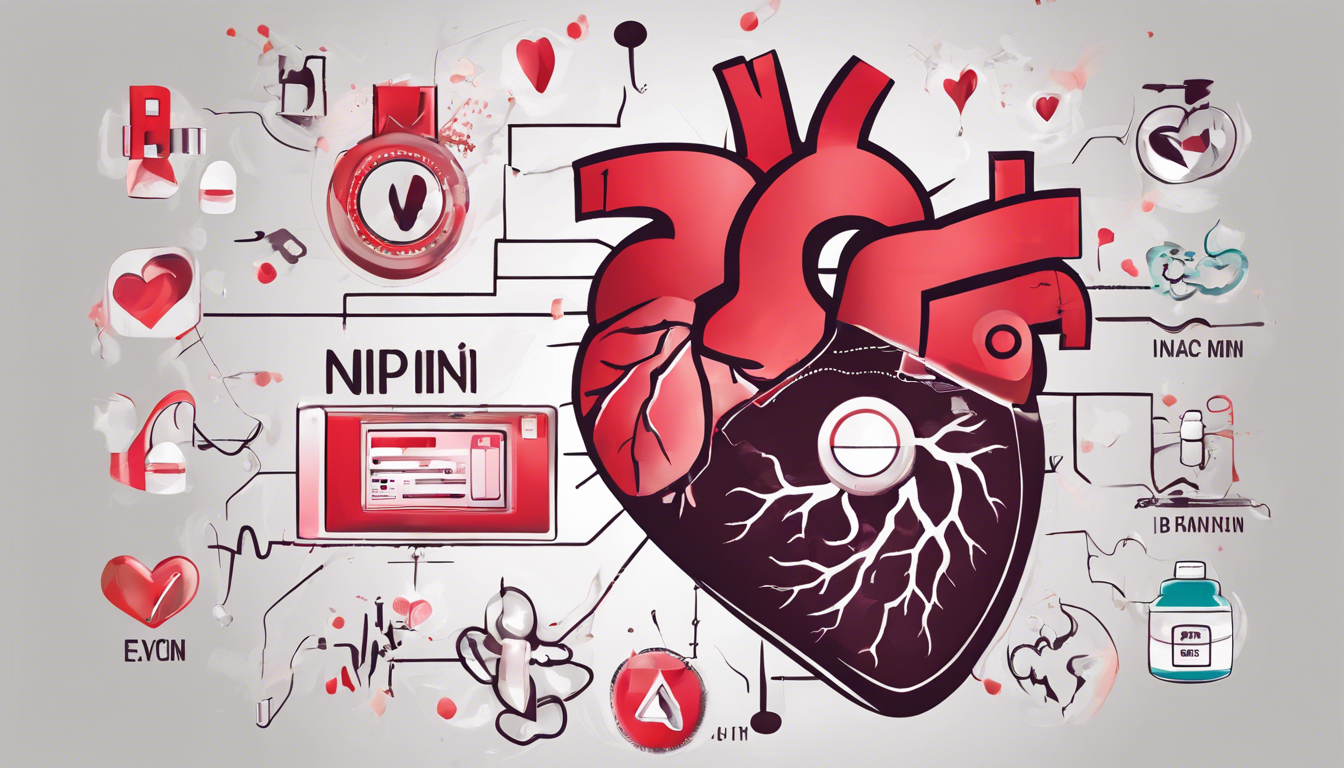Niacin, also known as vitamin B3, has long been celebrated for its benefits in promoting heart health, particularly for its ability to lower cholesterol levels.
As a vital nutrient, it plays a significant role in the body’s metabolic processes and can contribute to overall well-being.
However, as recent research published in February 2024 in the esteemed journal ‘Nature Medicine’ reveals, there is a darker side to this water-soluble vitamin when consumed in excess.
A comprehensive study funded by the National Heart, Lung, and Blood Institute has raised alarms about the risks associated with elevated niacin levels, linking them to increased incidences of heart attacks and strokes.
In this article, we will delve into the benefits of niacin, the troubling implications of high intake, and what this means for your heart health.
Key Takeaways
- Excessive niacin intake may increase the risk of cardiovascular events such as heart attacks and strokes.
- Recent research links elevated blood molecules 4PY and 2PY to high niacin levels, suggesting a need for careful monitoring.
- About 25% of Americans consume niacin above recommended levels, highlighting potential health risks associated with high vitamin B3 intake.
Understanding Niacin and Its Benefits
Niacin, also known as vitamin B3, plays a crucial role in maintaining healthy bodily functions, particularly in promoting heart health by lowering cholesterol levels.
However, recent research published in February 2024 in the esteemed journal ‘Nature Medicine’ has raised alarms about the risks associated with excessive niacin intake.
The study, conducted by the National Heart, Lung, and Blood Institute, involved analyzing blood samples from over 1,162 cardiac patients to explore the adverse effects of high niacin levels.
Researchers discovered elevated concentrations of two specific molecules, 4PY and 2PY, which are linked to excessive niacin consumption, and found a correlation with increased risks of significant cardiovascular events, such as heart attacks and strokes.
Follow-up investigations supported these initial findings, revealing that individuals with heightened levels of 4PY and 2PY were more likely to experience adverse cardiovascular incidents.
Additionally, animal studies indicated that 4PY could provoke inflammation within blood vessels, which further corroborates the potential connection between high niacin levels and cardiovascular disease (CVD).
Dr.
Stanley Hazen, a senior author of the study, noted a troubling trend—approximately one in four Americans exceed the recommended niacin levels, with the average daily consumption reaching about 48 mg—far exceeding the Recommended Daily Allowance.
This raises serious concerns regarding the implications of niacin intake on public health and highlights the need for vigilant monitoring of niacin consumption to ensure it remains within safe limits.
Read Also: DIY French Dressing: A Healthier, Homemade Twist on Classic Recipes!
The Dark Side of Excessive Niacin Intake
While niacin is often touted for its cholesterol-lowering abilities, the implications of excessive intake are becoming increasingly clear, particularly regarding heart health.
The study published in ‘Nature Medicine’ underlines the importance of moderation in nutrient consumption.
High doses of niacin, often found in supplements, can lead to elevated levels of harmful molecules in the bloodstream, which serve as markers of inflammation and cardiovascular risk.
This finding has sparked a broader conversation among healthcare professionals about the need for patients to consult with physicians before considering niacin supplements.
Although vitamin B3 can be beneficial when consumed in appropriate amounts through diet—found in chicken, fish, peanuts, and whole grains—over-reliance on supplemental forms, especially at levels higher than recommended, may lead to unforeseen health challenges.
Thus, it is crucial for individuals to be informed about their niacin intake and to prioritize a balanced diet to minimize the risk of adverse cardiovascular outcomes.
Check Also: Boost Your Heart Health: The Power of Daily Beetroot Juice for Postmenopausal Women




